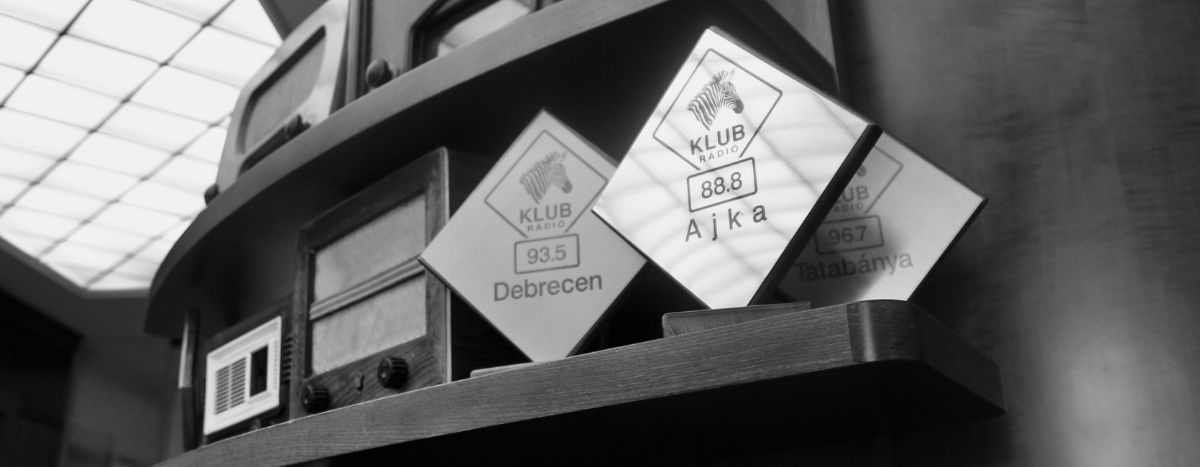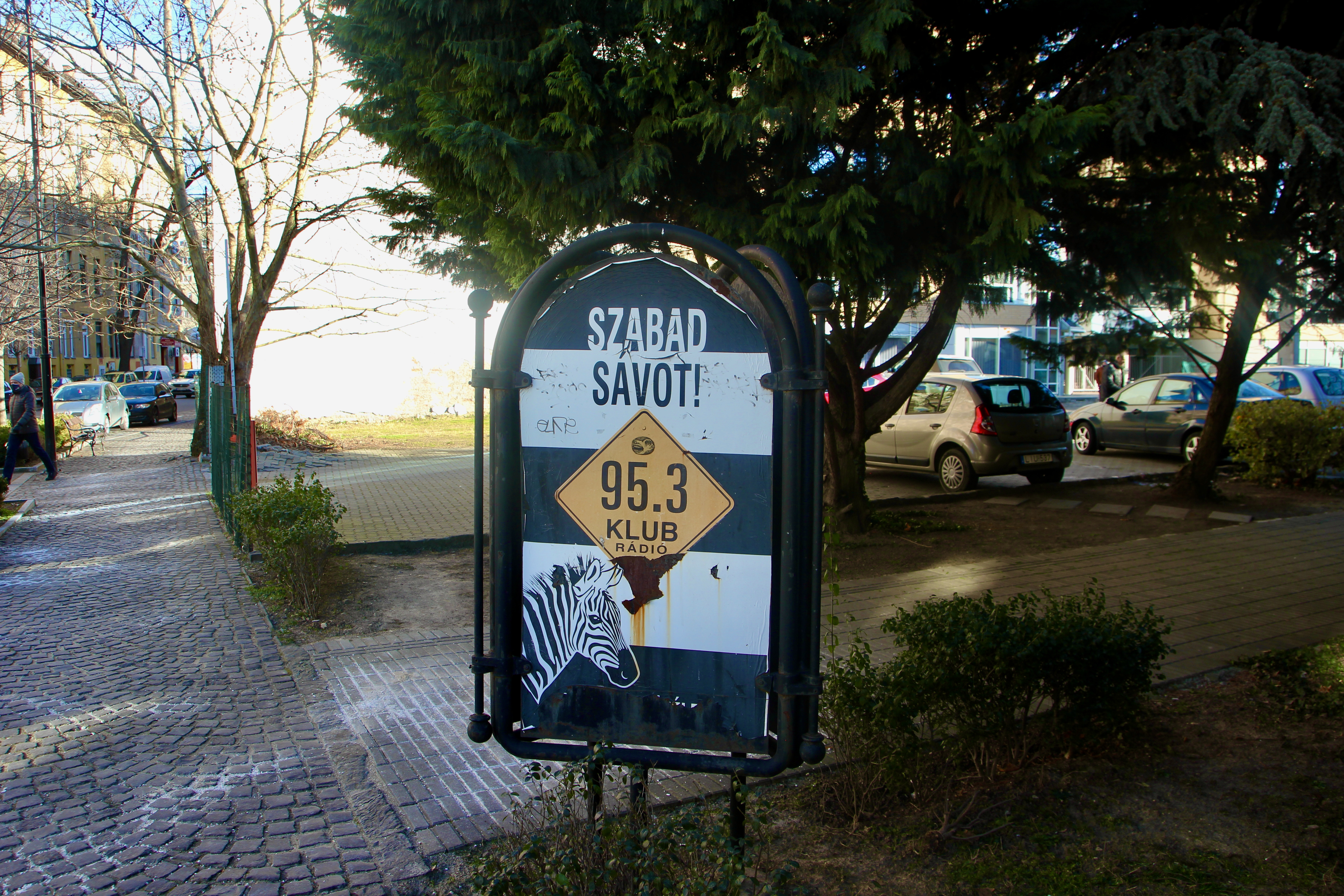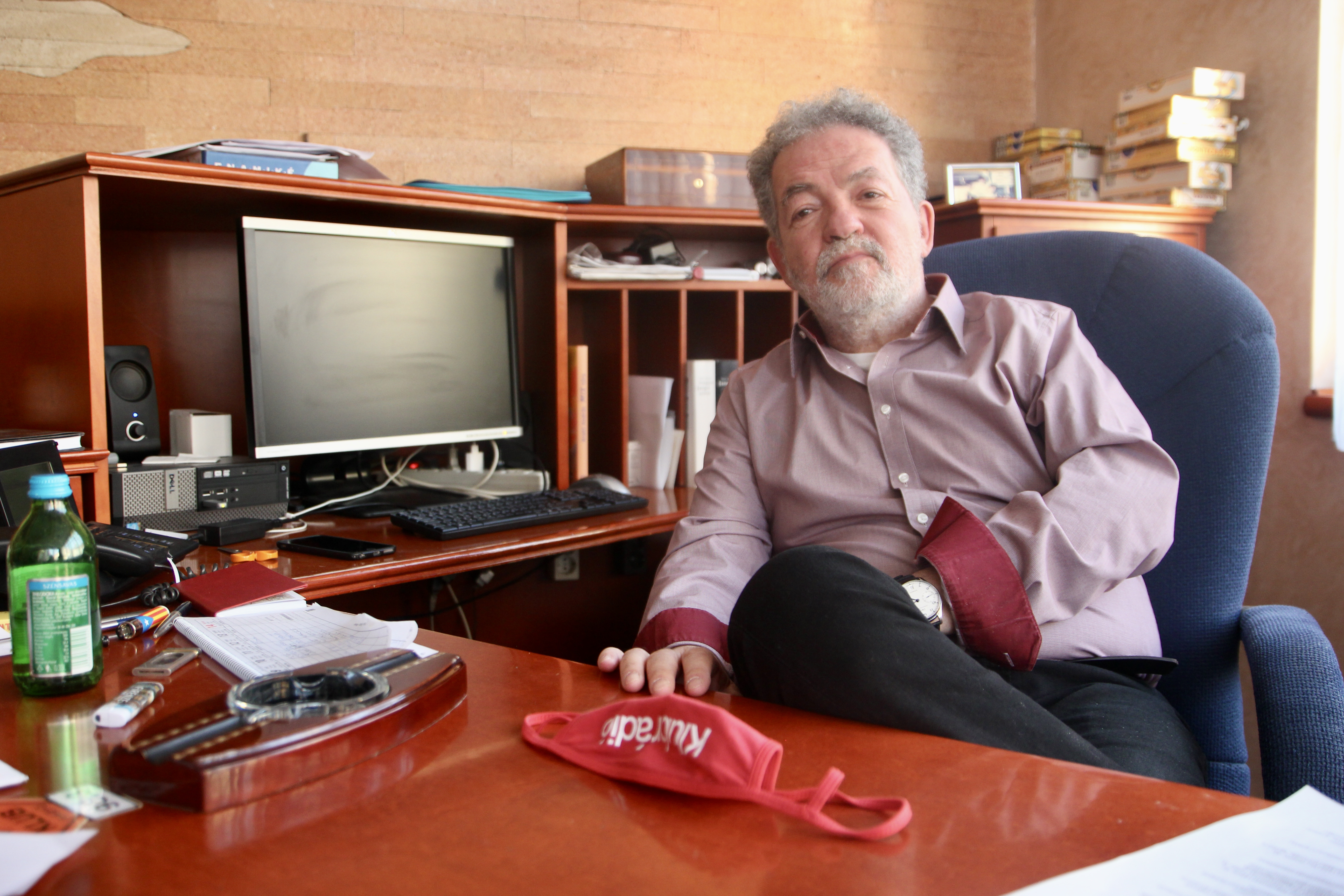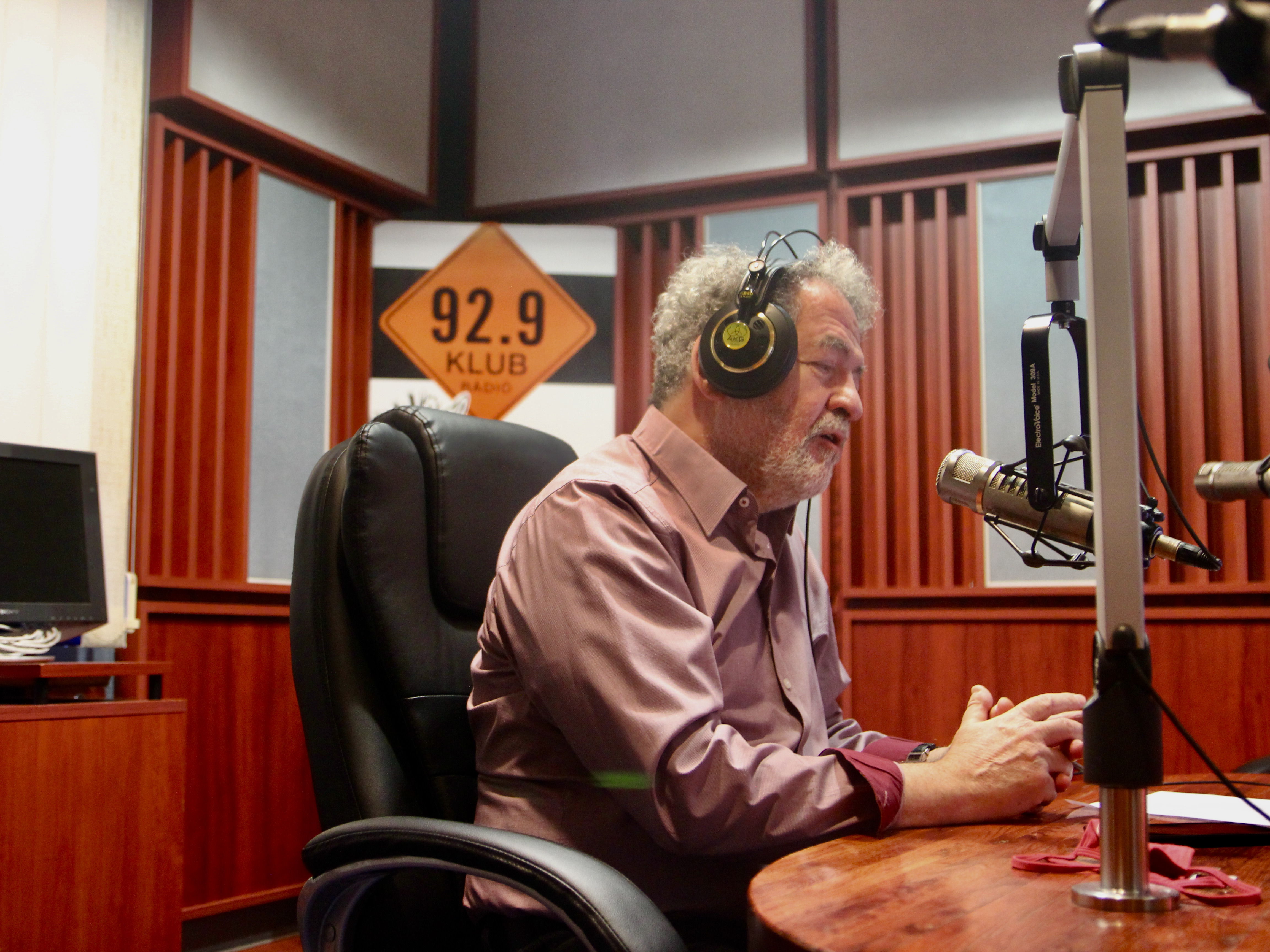
Klubrádió: the Hungarian opposition will not be silenced
Published on
Translation by:
Eloïse ThébaudSince 15 February the Hungarian opposition radio station Klubrádió has been unable to broadcast on FM waves. We report on a public service medium that, after 10 years of hard struggle, has no plans on giving up.
The rusted sign in front of the station’s headquarters was already a symbol of the past. Below the old slogan - “the independent voice” - is a number: 95.3 MHz. This is the former frequency of Klubrádió, which was changed in 2014 to the now-silent 92.9 MHz. During the night of 14 February, at 00:00, the station was forced to stop using its frequency due to a decision made by the Media Council and confirmed by the Budapest Court of Justice. When you enter the radio's HQ, you find all the former provincial frequencies that once belonged to the station - 93.5 in the city of Debrecen, or 96.7 in Tatabanya - alongside dormant transmitters.
Mihály Hardy, head of the news section, calmly welcomes us into his office. He's not surprised by these developments. Indeed, he appears quite confident. "We trust we will be back on the FM airwaves soon," he assures us, surrounded by portraits of himself wielding a rifle on a successful hunting spree. When Mr. Hardy starts to explain the reasons that his station was taken off the air, it's clear he is an experienced journalist, one used to fighting against a political force that's determined to make his work disappear.

A ten-year power struggle
The confrontation between Klubrádió and the government of Prime Minister Viktor Orbán began in 2010, when Fidesz - the conservative party led by Mr Orbán - returned to power. In the months following the election, with an absolute majority to amend the constitution, Orbán’s government attacked the press. That autumn he passed a new media law which established the 'State agency for media and communication' (NMHH, Nemzeti Média és Hírközlési Hatóság), a kind of Hungarian Ofcom with extensive regulatory powers. Despite numerous demonstrations and outcry in the European Parliament, this law inaugurated a decade of gradual clamp-down on freedom and plurality of the press.
In 2011 Klubrádió, which has close links to left-wing parties, found itself in the sights of the Media Council, the NMHH's armed wing, which suspended the radio's licence. "But at the time we were [still] able to get a provisional licence, allowing us to continue broadcasting," Hardy explains. Provisional licences of 60 days were regularly granted and then renewed. In early 2014, the station moved from its famous 95.3 frequency to 92.9 MHz, where it obtained a new seven-year licence. The radio station did not emerge unscathed from this battle, however, and it lost twelve provincial frequencies in the process.
Seven years on, the situation has not improved. On the contrary: "In Hungary, we have what we call 'salad laws', catch-all laws in which we find a lot of new rules and measures that concern very different sectors," says Hardy. This legal arsenal gives the Media Council many avenues through which to exert pressure. For example, among the six "serious faults" identified against Klubrádió in the Media Council's decision of early September 2020, two of them are delays in sending a weekly report.
"Every week, an extremely dense and complex Excel table has to be filled in. Instead of sending it on Friday, we send it the following Monday" says Mr Hardy, adding that "this type of report is absolutely useless." The station was late twice and had to pay two fines of about 30,000 forints, or just over 80 euros. Radio stations guilty of similar offences have had their licences extended without any problems.
Klubrádió has appealed, although there is little hope. The last legal recourse will be the European Court of Justice. "Unfortunately, there are several examples where Hungary has simply ignored the European Court's judgement," recalls Hardy. For him, the main reason for hope is the call for tenders to win the FM frequency previously used by Klubrádió. "We have the strongest case," he insists. But here again, nothing is straightforward: a Budapest law firm has decided to respond to the call by setting up a radio station (LBK Kft) from scratch, while the religious Spirit FM, which already has a frequency in Budapest, has also decided to apply. For the time being, the tender has been temporarily suspended by the Media Council, which did not provide an explanation for the verdict.
"It's a political decision"
After an hour-long discussion, the station's director András Arató invites us into his office. Despite his facemask, you can immediately smell the strong odour of cigars in the room. Mr. Arató chats first in French and then, as much out of modesty as comfort, asks to switch to English for the interview. Despite the impending eviction from the FM airwaves, and though he is clearly tired, the director seems to be rather optimistic.

"It's a political decision," he declares without hesitation. "The Court did not even try to defend its decision. It gave its verdict in one minute and did not even discuss our arguments. It only confirmed the decision of the Media Council." For Arató, who was an engineer under the communist regime, it is heartbreaking to see press freedom gradually being curtailed. For the past 10 years, he has noticed "a deterioration in the state of the courts. The laws have changed, sometimes contradicting each other, [often] there is no connection between a verdict and the law."
What future for 'Hungary's largest agora'?
Nevertheless, András Arató recalls that as early as 2010, Klubrádió survived the government's first daunting strategy: pushing the station into bankruptcy. As soon as it came to power, Orbán's government forced all public institutions to withdraw their advertising from media that were not pro-Fidesz. The effect was immediate: advertising revenues fell by half in one year. Subsequently, the multinationals, which benefit from numerous tax breaks from the government, also decided to desert the opposition media, reducing advertising revenues to a trickle.
Yet Klubrádió has survived thanks to its audience: "our listeners are so dedicated that they have started to pay for something that is normally free," says Arató with a smile. "Today, 99% of the costs are covered by donations. Our radio station has become a movement," he rejoices. And with good reason: in 10 years, the station has received more than 1.5 billion forints from its donors (just over 4 million euros.)

Despite the increasing appetite for online content Mr Arató does not want to change the radio's format. Both "out of loyalty to the 500,000 weekly listeners" and because he hopes the station will be back on air very soon. Offering content more adapted to the Internet could, however, help the station to target a younger audience, and a fortiori to reinvest in the provinces, which have been somewhat neglected for nearly 10 years.
"We had planned a roadshow across the country in 2020, but then the pandemic arrived," laments the director. Apart from the launch of a YouTube live stream, there is no change in sight for a station that claims to be a "public service radio." Eventually, Mr Arató has to head down to the studio, to take part in the iconic Megbeszéljük programme (Let's talk about it), a two-hour show during which listeners can call in to discuss any topic. On 12 February, for the last FM transmission, the director makes an exceptional appearance. "This is the biggest agora in Hungary, you know," he says proudly. In these pandemic-times we all hope to meet physically again, but let's hope that this kind of virtual agora does not disappear for good.
This article was written in partnership with the Courrier d'Europe Centrale
Translated from Rencontre avec Klubrádió : une voix d’opposition réduite au silence



